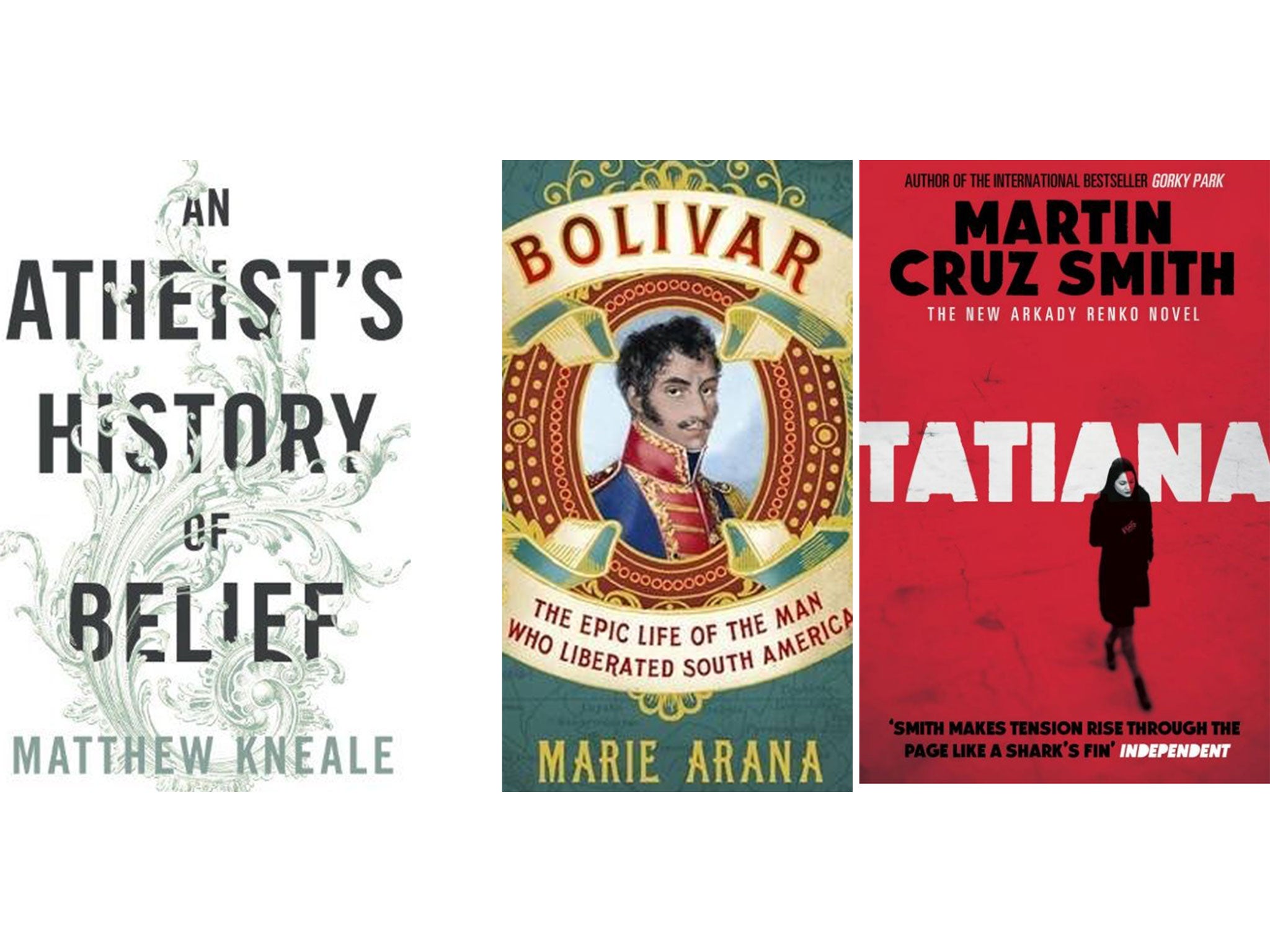Tatiana, An Atheist’s History of Belief, Bolivar, Strictly Ann: paperback reviews

Tatiana, by Martin Cruz Smith
Martin Cruz Smith is one of the world’s finest thriller writers, but his books do more than merely thrill. In his Arkady Renko novels, which centre on the eponymous Moscow detective, he uses the genre as a vehicle through which to explore the bleak politics of post-Soviet Russia. The latest instalment in the series focuses on the death of Tatiana Petrovna, a journalist whose fearless reporting brought her enemies in the government and organised crime. The official verdict is suicide, but Renko is suspicious and he sets out to investigate. The trail of clues leads him to Kaliningrad, a ruined Siberian port where a translator acquaintance of Petrovna’s was murdered. The novel incorporates allusions to real life events – the Moscow theatre siege of 2002; the death of Anna Politkovskaya – within a pacy, satisfying plot, and Smith’s prose is characteristically taut and vivid: “As long as Victor was working a case, he was sober and a good detective. He was like a hoop that stayed upright as long as it moved – and fell when it stopped.”
An Atheist’s History of Belief, by Matthew Kneale
Matthew Kneale’s book recounts the history of religion from an atheist’s perspective. His prose is punchy and readable, and his narrative attains a real momentum as it moves from prehistoric animal-worship to the advent of monotheism to the political fanaticism of the 20th century. However, the book’s central thesis, that belief in all its forms speaks merely to a desire for “reassurance”, might be contested. Even fellow atheists will find Kneale’s argument that religion is a cosmic comfort blanket somewhat reductive; he says very little about love or beauty or the yearning for transcendence. His tendency to adopt a condescendingly pedagogical tone when discussing finer theological points doesn’t help either.
Bolivar, by Marie Arana
“He rode, fighting all the way, more miles than Ulysses ever sailed,” wrote Thomas Carlyle of Simon Bolivar, the South American revolutionary. “Let the coming Homers take note of it!” Marie Arana’s superb biography certainly has a Homeric aspect – drawing on her experience as a novelist, she casts Bolivar’s life as an epic adventure story. Born in Caracas in 1783, Bolivar absorbed Enlightenment principles on his youthful travels in Europe, and returned to lead his native continent’s rebellion against the Spanish yoke, inspiring six nations to independence despite little military experience. Arana does not overlook her subject’s flaws, but she does due justice to his astonishing achievements. Bolivar, she writes, quite simply “remade a world”.
Strictly Ann, by Amn Widdecombe
Ann Widdecombe’s autobiography opens promisingly, with an account of an exciting family legend. According to rumour, her ancestors included “wreckers”: men who lured ships on to Cornish rocks so that they could loot their cargo. Sadly her book soon runs aground itself, foundering on the author’s many prejudices. Widdecombe has an interesting story to tell: a colonial childhood in Singapore; a career in politics as a Tory MP; belated celebrity as an endearingly crap dancer on television’s Strictly Come Dancing. But with its unpalatable longeurs on all that’s wrong with Britain – left-wing politicians and the BBC take the brunt of the criticism – this book proves rather a chore to get through.
Join our commenting forum
Join thought-provoking conversations, follow other Independent readers and see their replies
Comments